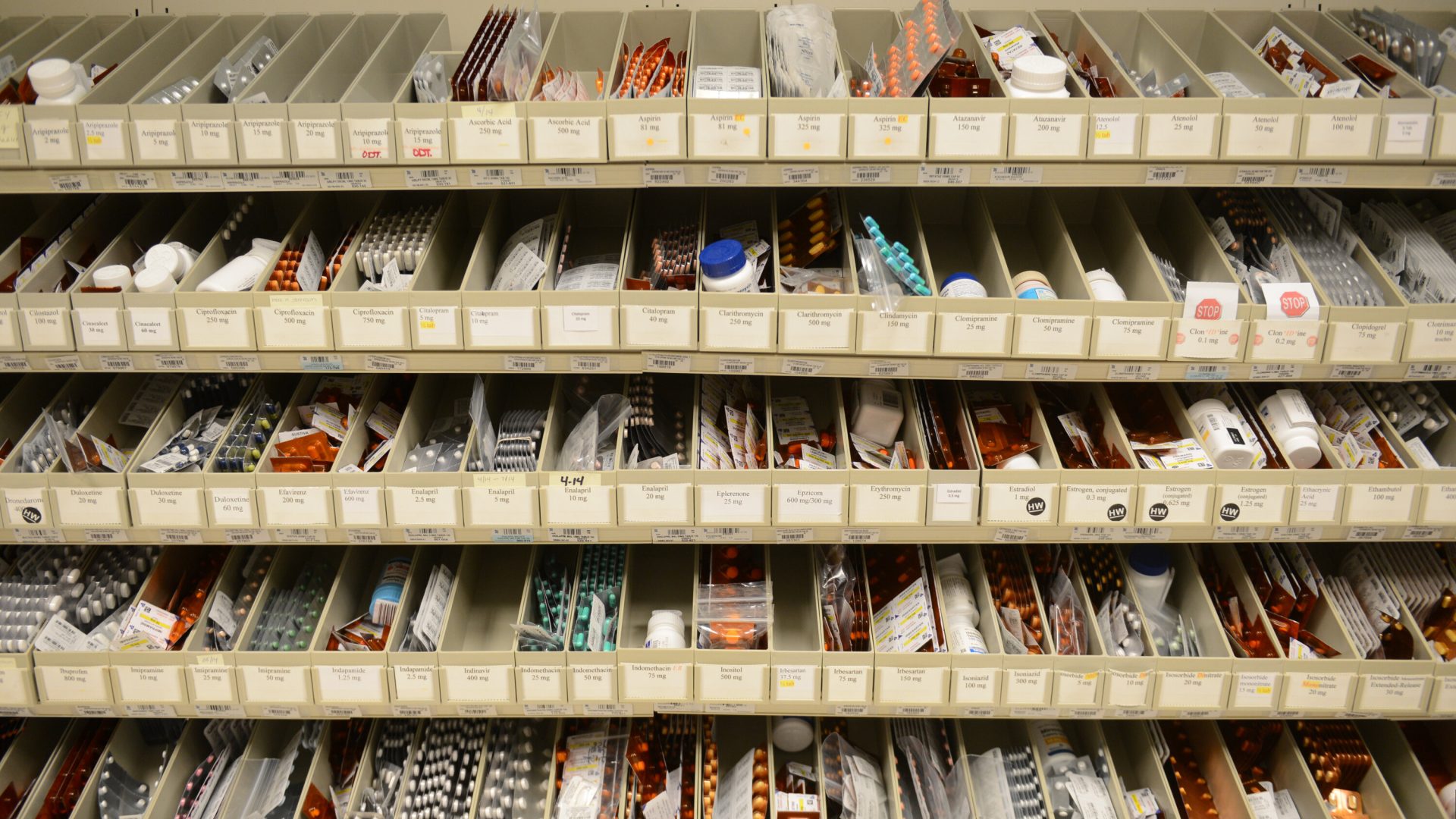It is concerning to see the latest report from the U.S. Pharmacopeia (USP) that reveals drug shortages in our country have reached a decade-high and are lasting longer than ever before.
This not only impacts patient care but also exposes a vulnerability in our market that needs to be addressed.
According to the USP’s inaugural Drug Shortages Report, which encompasses trends up to the end of 2023, the average drug shortage now lasts for over three years compared to just two years in 2020.
“As we navigate the complex landscape of drug shortages, it is paramount to shift the market into a stable state,” said Anthony Lakavage, senior vice president for Global External Affairs at USP.
“Economic pressures, especially the very low prices that generics manufacturers recover for many medicines, along with contracts that are frequently broken, have left our generic medicine supply chain fragile. Unexpected shocks can break the system and disrupt the supply of quality medicines. This worrisome trajectory leads to more frequent drug shortages, prolonged scarcity, and more people at risk of not getting the medicines they need, when they need them.”
Leveraging USP’s Medicine Supply Map (MSM), a tool that uses artificial intelligence and predictive analytics to identify, characterize, and predict risk in the complex medicine supply chain, the report sheds light on four factors that singularly, or in combination, can leave a drug more vulnerable to shortage:
Low prices: Drug products, commonly older generics, with low prices have a higher risk of drug shortage. USP’s analysis shows that in 2023, product discontinuation increased by 40 percent in one year, from 100 drug products in 2022 to 140 in 2023, suggesting tightening margins forced manufacturers to tap out of the market. It also reveals that the average price of sterile injectable medicines in shortage was nearly 8.5 times lower than those not in shortage.
Manufacturing complexity: Drugs with higher manufacturing complexity, such as sterile injectables, are more vulnerable to shortage. Manufacturing complexity can also be seen in certain therapeutic classes–such as certain antibiotics needing dedicated facilities–and in certain active ingredients that require complex chemical synthesis.
Geographic concentration: Drugs in which the active pharmaceutical ingredient (API) and/or finished dose are made in a single or few locations are more susceptible to shortage.
Quality concerns: Quality-related issues that surface in regulatory agency inspection outcomes and manufacturer recalls can also inform drug shortage risk but must be used along with other information to be meaningful.
“Quality comes at a price,” said Vimala Raghavendran, vice president for Informatics Product Development at USP.
“The economics of generic drugs often leave manufacturers with razor-thin margins, making it challenging to prioritize investment in modern machinery or to elevate standards of quality. Without sufficient profitability, the cycle of innovation and improvement becomes difficult to sustain.”
This is a significant increase and has far-reaching repercussions for patients who rely on these medications for their health.
The report also highlights that a wide range of therapeutic classes have been impacted by these shortages, with more than half of new shortages being generic sterile injectable medicines.
This is particularly concerning as these types of drugs are crucial for treating serious illnesses and conditions.
In response to this alarming trend, Anthony Lakavage, senior vice president for Global External Affairs at USP, stated that it is crucial to shift the market into a stable state.
As we continue to navigate the complexities of drug shortages, it is imperative that action is taken to ensure stability and availability of essential medications.
Luckily, one company called JASE Medical is on a mission to change things for Americans in need.
JASE Medical is a telemedicine company with a singular focus to change all of that. This platform offers access to basic emergency preparedness medications for every family in America.
JASE Medical has extensively researched and established a nationwide network of physicians specially trained to evaluate individual needs, diagnose conditions, and prescribe necessary medications for emergency preparedness.
These prescribed medications could potentially save lives for you and your loved ones, all conveniently accessible through the JASE Medical online portal.
Whether it’s allergies, pre-existing conditions, or uncertainty about medication usage, the JASE Medical physician network is equipped to address all concerns.
Their user-friendly platform ensures a seamless consultation process that typically takes just over five minutes to complete. Shortly after, your personalized JASE Case will be delivered right to your doorstep.
What’s in the JASE Case?
The kit contains the following antibiotic medications:
Amoxicillin/Clavulanate.
Azithromycin.
Ciprofloxacin.
Doxycycline.
Metronidazole.
All medications carry a level of risk, but these five antibiotics were selected for their effectiveness and optimal patient safety.
Guidance from the CDC says it best: “Antibiotics … save lives, and when a patient needs antibiotics, the benefits usually outweigh the risks of side effects and antibiotic resistance.”
Are there instructions?
With your JASE Case comes a guidebook titled the “Emergency Antibiotic Guide.” As you turn the pages, you will find lists of infections that are treatable with the JASE Case antibiotics.
Here are some of the possibilities:
Anthrax, plague and tularemia (resulting from bio-terror).
Bite wounds.
Cellulitis.
Diverticulitis.
Intra-abdominal infections.
Tooth infections.
Ear infections.
Pneumonia.
Sinusitis.
Strep throat.
Urinary tract infection.
and more.
The idea is that when you have an emergency and do not have direct access to a health care provider, you can consult the handbook and use the medications. JASE Medical ensures that, when needed, you will take these medicines safely and effectively.
What about chronic conditions?
In addition to the JASE Case (antibiotics), the JASE Medical platform will address emergency preparedness medications for those with chronic medical conditions. JASE Medical’s same physician network is prepared to assess your condition and the need for appropriate preparedness medicines.
Ongoing support
Yes! JASE Medical is there. As part of its mission to prepare you medically, JASE Medical will provide unlimited ongoing support from their physician network for questions about any of the medications prescribed.
What about shelf life?
The good news about antibiotics is that they last longer than you think. The FDA’s Shelf Life Extension Program found that 88% of the drugs studied maintained their potency and safety beyond the published expiration date. The extended usability of these medications ranged from 5.5 years to as many as 23 years beyond their printed expiration!
The JASE Case antibiotics all carry the FDA’s required expiration dates. JASE Medical endorses those dates. The JASE Medical team suggests buying your initial supply and then using your regular refills to keep a rotating supply of fresh medication on hand. In this way, you will keep a basic supply of full-potency meds indefinitely and at little or no additional cost.
Value and peace of mind
At the end of the day, this is all about peace of mind and knowing that you are ready for the unexpected. Understanding that you have found a solution, priced at a fraction of what it would otherwise cost you, only adds to that peace of mind.
Go to JASEMedical.com and secure your emergency medications, an emergency antibiotic guide, unlimited physician consultation and a team of professionals who are on a mission.
Visit Jase Medical today to ensure you have a backup plan!


